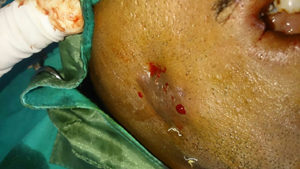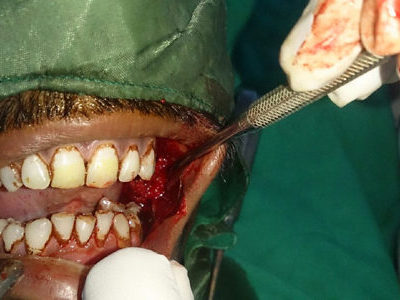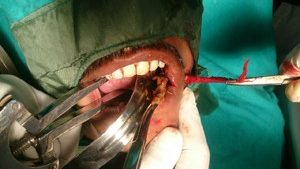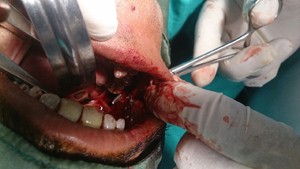Oro – Facial Infection Surgery
Orofacial infections are common conditions that originate in the oral cavity and the face with the propensity to spread to adjacent tissues. While largely odontogenic in origin, the infections could arise from other structures of the face and oral cavity. The spectrum includes periapical infections, which if untreated may spread to fascial spaces and in severe cases may result in Ludwig’s angina and widespread necrotizing fasciitis. Streptococcus spp and Staphylococcus spp have been largely implicated as causative agents.
Antibiotic therapy has resulted in significant reductions in the morbidity and mortality associated with orofacial infections. Despite this success, an increasing resistance to antimicrobial agents is reported, because of the indiscriminate use of antibiotics and the evolution of micro-organisms.
Prescribing successful antimicrobial therapy is a function of clinical experience and the availability of scientific evidence. Hence pragmatic and rational approaches to the selection of antibiotics should be encouraged when dealing with infections in order to limit development of anti-microbial resistance.8 The current regimen used at the Department of Maxillofacial and Oral Surgery, Medunsa Oral Health Centre, Sefako Makgatho Health Sciences University is based on international recommendations and has not been derived from local data to support clinical practice.
This study was therefore carried out to characterize the micro-organisms involved in orofacial infections and to provide evidence to inform the development of antimicrobial therapy regimens to treat pathogenic micro-organisms in the Department of Maxillofacial and Oral Surgery.





